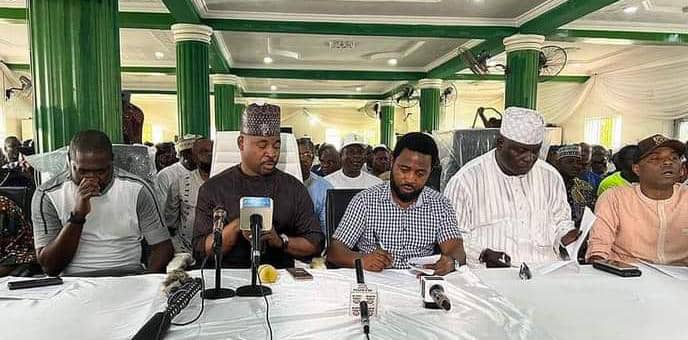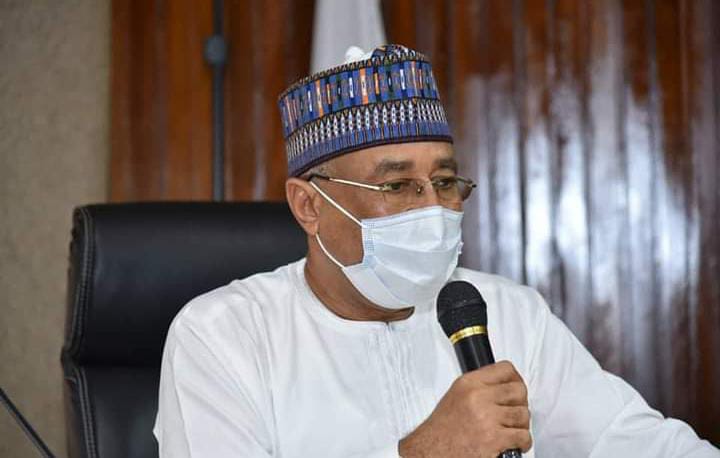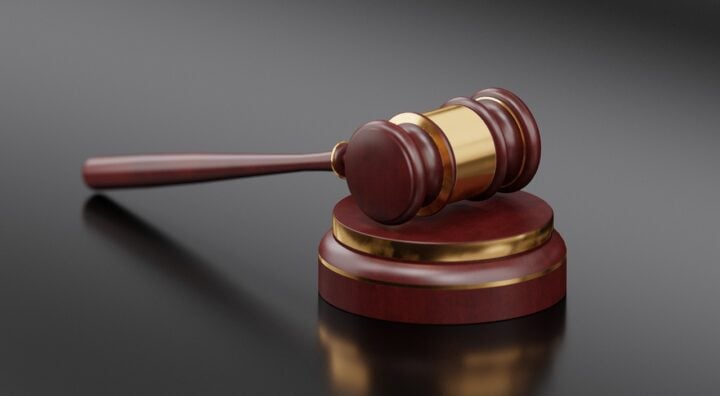A federal high court in Abuja has again postponed judgment in a suit seeking the removal of Ben Ayade as Cross River governor.
Although the court had initially fixed March 25 to deliver judgment, the case had been rescheduled to April 6.
But at the court session on Wednesday, Taiwo Taiwo, the presiding judge, again deferred judgment till Thursday.
Instead of proceeding to deliver judgment, Taiwo asked parties in the matter to address the court on the consequences of a recent judgment delivered by a court of appeal in Ebonyi.
Advertisement
The Ebonyi division of the court of appeal had, on April 1, upheld a high court decision that refused to sack David Umahi as Ebonyi governor on account of defection.
Henry Njoku, a high court judge in Ebonyi, had on February 28 dismissed a suit brought by Sunny Ogbuoji, the All Progressives Congress (APC) candidate and runner-up in the 2019 governorship election, which sought Umahi’s sack for defecting from the Peoples Democratic Party (PDP) to the APC.
Njoku had held that Umahi and his deputy did not flout any law by their defection.
Advertisement
Aggrieved, Ogbuoji appealed the high court’s decision.
Affirming the high court’s decision, the appellate court dismissed the appeal for being inconsistent with the constitution and extant laws of the country.
Addressing the court of appeal on the issue on Wednesday, the Independent National Electoral Commission (INEC), represented by Anthony Onyeri, told the court that the case of Umahi and Ayade are similar.
“My lord, even though the first defendant (INEC) is a neutral body, our understanding of the judgment is that it is similar to this case,” he said.
Advertisement
“The crux of the matter that was decided by the court of appeal was whether there has been a defection by the governor of Ebonyi state or not, which is similar to this case.
“The doctrine of stare decisis is an essential component of our jurisprudence.
“We, therefore, ask my lord to bow to the doctrine of stare decisis in the instant case.”
Emmanuel Ukala, PDP counsel, submitted that the reliefs and issues for determination before the appellate court were fundamentally different from the case against Ayade.
Advertisement
Ukala argued that the appellate court, in its judgment, did not interpret section 1(1) of the 1999 constitution, as amended, as it was not part of what was for determination in the case at the time.
He noted that whereas in the instant case, the court was invited to interpret section 180(1c) and (1d) of the constitution, in the Ebonyi matter, the court only interpreted sections 221, 177, 179, 285(13) of the constitution.
Advertisement
“My lord, we also submitted section 83 of the electoral act before this court. That section was never mentioned before the high court of Ebonyi state or at the court of appeal in Enugu,” Ukala said.
He also alleged that the suit that led to the appeal court verdict was an internal arrangement by the APC.
Advertisement
“Our position is that a defection constitutes the vacation of office and the defendants are deemed to have resigned,” he said.
“Since the defendants cannot rule any part of Nigeria as an independent candidate or with minority votes, they, therefore, cannot be declared winner with minority votes.
Advertisement
“Which manifesto are they running now? Is it that of the PDP that won the election, or that of the APC that was roundly rejected by the people?
“We urge the court to take a firm decision that will become a judicial precedent for matters like this.”
Ukala further stated that since the PDP was not made a party in the suit against Umahi, it should not be affected by the judgment.
“It (PDP), therefore, cannot be smuggled into the matter for the sake of judicial precedent,” he said.
“No person is to be adversely affected by a judgment it was never made a party to.
“They had every opportunity to join the PDP as a party in the matter, but they never did. Therefore, that decision is never binding on the PDP because it was never made a party in the case.
“In the circumstance, we urge the court to hold that the case is not applicable in this case and we have shown in principle that it cannot operate as stare decisis.”
On the other hand, Mike Ozekhome, Ayade’s counsel, insisted that the case decided by the appeal court was the same as the case against Ayade.
“My lord, the entire reliefs and questions for determination in this matter are exactly the same with the subject matter of the case Ogbuoji presented before the court of appeal,” he said.
He argued that though Ayade was voted in through the PDP, he exercised his right under section 40 of the constitution when he decided to defect to the APC.
Ozekhome told the court that the supreme court had, in a judgment that was delivered by Walter Onnoghen, former CJN, held that the issue of defection may be “immoral and unconscionable, but not illegal”.
He maintained that the power to declare the seat of a governor or his deputy vacant was not presented to the court in section 180, 188, 189 or any other section of the constitution.
“The court can only expound the law; it cannot expand it,” Ozekhome submitted, adding that the apex court previously held that votes belong to individuals and not the political party.
“It held that the political party is merely a vehicle to gather votes. We, therefore, urge my lord to dismiss this matter with punitive, exemplary and aggravated cost,” he added.
Add a comment






